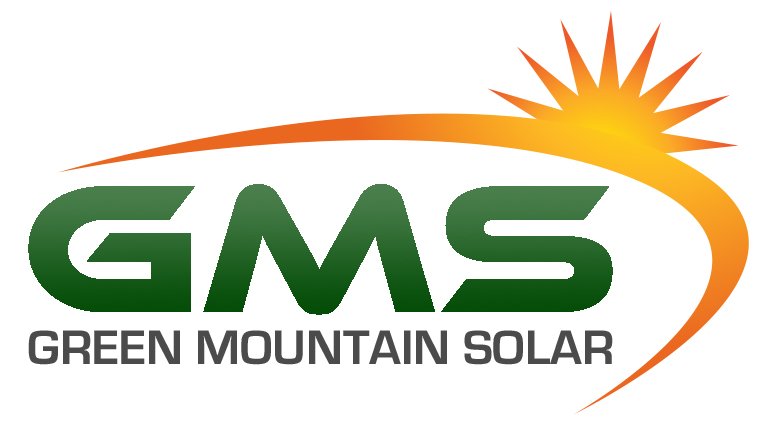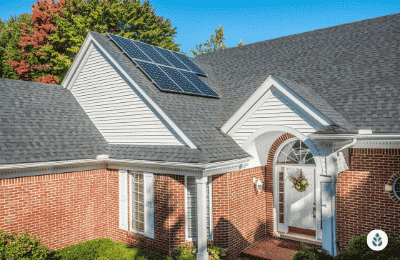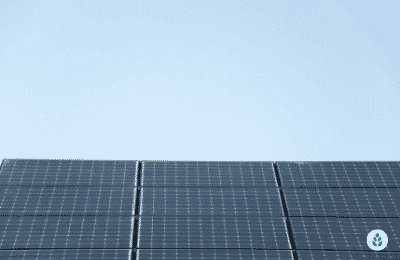
Solar Panel Cost in Vermont (2024 Local Savings Guide)
Here’s a quick look at the estimated cost of solar in Vermont:
- Average Cost Per Watt: $3.59
- Cost of Average System: $15,078*
- Cost of Energy Without Solar: $51,292
- Payback Period: 10 Years**
- Lifetime Savings of Going Solar: $29,752
*Average system size is calculated using data from the Energy Information Administration. This price is after tax credit.
**Payback period is calculated assuming the system is purchased in cash.
Each product and or company featured here has been independently selected by the writer. You can learn more about our review methodology here. If you make a purchase using the links included, we may earn commission.
Cost of Solar Panels in Vermont
Most solar panel systems in Vermont cost around $3.59 per watt, which is more expensive than the national per-watt average of $3.33. That means that the typical 6-kW system required to offset electricity costs in the area would cost approximately $21,540 before claiming the federal tax credit, and $15,078 after. This total is well below the national average given the smaller system size needed in Vermont versus in most other states.
Vermont residents don’t use much energy when compared to other areas, but the electricity rates throughout the state are quite high — 20.46 cents per kilowatt-hour versus the national average of 16.79 per kWh. As such, solar equipment has a higher value in Vermont than in many other states.

SunCommon

Regional Service
Average cost
Pros
- Certified B Corp
- Offers products from leading manufacturers
- Many years of experience
Cons
- No leases or PPAs
- Expensive

Blue Raven Solar
Pros
- Industry-leading in-house financing
- Competitive pricing
- Excellent reputation
Cons
- Doesn't offer solar batteries (coming 2022)

Green Mountain Solar

Local Service
Average cost
Pros
- Locally owned and operated
- Offers products from leading manufacturers
- Great warranty coverage
Cons
- No leases or PPAs
- Relatively young company
Solar Panel System Installation Cost in Vermont
When you’re estimating the price of going solar for your home in Vermont, the most critical factor to consider is the size of the system you’ll need. You’d need a 6-kW system to offset the average $116.01 monthly energy bill, but every additional kW you need will add nearly $3,600 to your total. The table below provides some typical system sizes in VT, along with pricing before and after the federal tax credit.
| Size of Solar Panel System | Vermont Solar Panel Cost | Cost After Federal Tax Credit |
| 3 kW | $10,770 | $7,539 |
| 4 kW | $14,360 | $10,052 |
| 5 kW | $17,950 | $12,565 |
| 6 kW | $21,540 | $15,078 |
| 7 kW | $25,130 | $17,591 |
| 8 kW | $28,720 | $20,104 |
| 9 kW | $32,310 | $22,617 |
Want to see our review of the best solar companies in Vermont that offer high-quality systems at affordable prices? Just click below.
See also: Calculate how much you can save by going solar
 What Determines the Cost of Solar Panels in Vermont?
What Determines the Cost of Solar Panels in Vermont?
System size, which is determined primarily by your monthly energy consumption, is the single most significant cost factor when it comes to pricing your solar panel system. As discussed above, most Vermont homeowners will need around a 6 kW solar panel system to offset their energy bills.
However, it’s entirely dependent on your home’s energy usage.
If you have a smaller home or are great at conserving energy, you may only need a 3 or 4 kW system to power your household. If the average Vermont energy bill of nearly $116 seems low compared to your bills, you’ll likely need a bigger system.
Aside from the size, there are some other factors that can increase or decrease the total cost of a solar panel system in Vermont, which we’ll discuss below.
Solar Equipment
Like with anything else, you pay for quality and brand name for solar equipment. While Vermont is not a top state for solar, there are still over three dozen solar installers in the state, each carrying different products at different prices.1
Because Vermont only sees about 167 sunny days per year (far less than the national average of 205 days of sunshine), you’ll likely need to to invest in higher-cost, higher-efficiency solar panels. High-efficiency panels, like SunPower/Maxeon or REC, generate more power per panel, making them comparable to lesser quality solar panels that receive more sunshine.
Vermont is also no stranger to inclement weather, including thunderstorms and heavy snow, which is why many residents choose to invest in a solar battery for energy storage. Additionally, while having snow on your solar panels is okay — and even beneficial — it can be damaging under extreme weather conditions.
Fortunately, high-efficiency panels also tend to be the most durable and are known to be protected under comprehensive warranties.
Solar Financing in Vermont
As discussed, the cost of going solar in Vermont is more expensive than the national average.
While most Vermonters can power their homes with smaller solar panel systems, you’re still likely to pay between $10,500 to $32,500 before applying incentives. That’s not an expense most people can pay upfront with cash.
Fortunately, there are several solar financing options available for Vermont homeowners to make renewable energy systems more accessible. Here are a few options we found:
- Efficiency Vermont: Offers flexible, low-interest financing to pay for energy-saving home improvements
- Vermont Federal Credit Union: Offers an Efficiency Home Improvement Loan up to $40,000 for solar panels, as well as weatherization, insulation and heat pumps
- Vermont State Employees Credit Union (VSECU): Offers VGreen loans on qualifying purchases
Many solar installers have solar financing options available as well, either in-house or through a trusted bank or solar loan company.
Vermont Solar Installation Company
There are nearly 40 solar installers in the state of Vermont, but it’s unlikely to receive the exact same solar installation quote twice.2 We’ve vetted the best solar installers in Vermont and found the strongest contenders are SunCommon, SunPower, Green Mountain Solar, PlugPV and Catamount Solar.
SunCommon and SunPower offer some of the best solar panels on the market — like Maxeon, LG and Tesla — and as such, will likely charge more for installation. On the other hand, PlugPV and Catamount offer a wider variety of equipment — including more affordable solar panels like Qcells — and will therefore be more budget-friendly.
We recommend getting several quotes for solar installations to compare rates and find a company that will offer the best value for your home.
Additional Considerations and Costs in Vermont
We’ve discussed the main drivers of the cost of solar, but there are a few other things to consider before installing a solar energy system on your Vermont home.
- Permits: In Vermont, connecting your home solar system to the electrical grid requires a Certificate of Public Good (CPG) from the Public Service Board (PSB). And you may need an additional local permit from your city or town.3 The cost of these permits can vary depending on where you live, but often your solar contractor will help you with this process and may even cover the cost upfront, tacking it onto your installation bill later.
- Licenses: The State of Vermont requires solar installation companies to have a “certified solar partnership” with one of the leading solar agencies, like the North American Board of Certified Energy Practitioners (NABCEP) or the Solar Rating Certification Corporation (SRCC). This likely won’t be a cost to you but may be an additional charge that bumps the labor costs for your solar installer.
- Warranties: Most solar panel brands offer lengthy, comprehensive warranties, but the brands with the best warranties are often the most expensive. Because solar is a hefty expense, most find that it’s worth it to pay for a strong warranty.
- HOAs: Vermont has clear solar access rights, meaning homeowners associations (HOAs) are not allowed to restrict homeowners from installing solar panel systems.4
- Environmental zoning: Vermont is a pretty solar-friendly state, but some areas of the state may be more strict on the design and placement of your solar panel system. For example, in order to receive a CPG, solar projects will be screened to ensure they won’t interfere with landscaping, vegetation, fencing and topographic features.5
Watch Below: How Well Will Your Solar Panels Still Work When Covered In Snow?
Vermont Solar Incentives
Vermont is considered a solar-friendly state, and residents have access to many incentives and rebates that ultimately reduce the costs of going solar and make it a more worthwhile investment. Below are the incentives available to homeowners in Vermont.
Federal Solar Tax Credit For Vermont Homeowners
The federal solar investment tax credit — commonly abbreviated as the “ITC” — is one of the most significant rebates available in Vermont. The rebate is for 30% of the total system cost, which in Vermont averages out to $6,462. This amount is credited toward the federal income taxes you owe.
The 30% federal tax credit is available to all homeowners in Vermont who install solar panels through 2032. It is set to reduce to 26% in 2033 and 22% in 2034 and will expire in 2035 unless renewed by Congress.
Net Metering Policies in Vermont
Net metering is a policy that allows you to reduce your total electricity costs using any excess energy your system produces. In most cases, when you go solar, your home will still be connected to the local power grid so you can pull energy to use at night or any other time your panels fail to produce enough power for your home. When the reverse is true, and your panels produce more power than you use, you can send excess energy to the grid in exchange for credits from your utility company.
Vermont has an excellent net metering policy, which mandates that all excess energy be purchased back by the power company at the retail rate. That means that you’ll get compensated for energy at the same price per kilowatt that you pay when you need electricity. So, if your bill is $30 but your system has overproduced $20 worth of electricity, you’ll only pay $10 to your utility company that month.
All utility companies offer the same net metering option in Vermont, with the exception of Green Mountain Power. GMP provides above-average rebates and incentives for solar, making it the best electric company in Vermont for net metering.
Local Solar Rebates in Vermont

One of the most significant local incentives is the Uniform Capacity Tax and Exemption for Solar, which is essentially a property tax exemption. All home improvements that increase your property value — including the installation of a solar electric system — usually also bump up your property taxes. However, the property tax exemption means your property taxes won’t increase from installing solar. That could mean thousands of dollars saved for many homeowners in Vermont.
Vermont also offers a sales tax exemption, so you won’t pay sales tax on photovoltaic equipment. With a typical system cost of $21,540 and an average state sales tax rate of 6%, that’s an average savings of around $1,292.
Finally, Vermont has solar rights laws in place, which guarantee access to solar energy for all homeowners. These laws mean your neighbor or other buildings in the area will never cause shading of your panels during peak production times, and you’ll be able to install solar equipment even if you live in a community with an HOA that doesn’t allow exterior renovations.
You might be entitled to additional benefits and rebates based on your municipality within Vermont or your electric company. You can check the DSIRE database for other incentives.
The Best Solar Panel Brands Available in Vermont
As mentioned above, the solar panel brand you choose can have a significant impact on your total system cost. For the most part, higher quality panels with better warranties will cost more on a per-watt basis, leading to higher overall costs.
The table below provides a look at relative pricing for the top solar panel brands in Vermont to give you an idea of which brands may best fit your budget.
| Solar Panel Brand | Average Cost Per Watt ($-$$$$$) |
| LG Solar | $$$ |
| Canadian Solar | $$$ |
| JA Solar | $$ |
| Mission Solar | $$ |
| Panasonic | $$ |
| Q Cells | $$ |
| REC | $$$ |
| Silfab | $$$ |
| SunPower | $$$$$ |
| Tesla | $$ |
| Trina Solar | $$$ |
Ready to see how much solar panels would cost for your Vermont home? You can get a free, no-obligation quote based on your household’s energy needs by selecting one of our recommended solar providers below.
Read More About Going Solar
- What Are the Best Solar Installers in Vermont?
- Is it Worth Going Solar in Vermont?
- How Much Can You Save With Solar Incentives in Vermont?
The cost information presented in this article is derived from a comprehensive analysis, incorporating data from multiple industry sources. The average cost per watt per state was calculated based on figures from Consumer Affairs, Energy Sage, and Berkeley Lab’s Electricity Markets & Policy Department. Additionally, monthly energy consumption and the average monthly cost of electricity were sourced from the U.S. Energy Information Administration, ensuring a well-rounded and accurate representation of the information presented.
FAQs: Solar Panel Cost Vermont
At EcoWatch, we get lots of questions from Vermont homeowners about the costs and process of going solar. Below are some of the questions we see most often, along with our responses. If you have specific questions that aren’t answered here, reach out to our team of solar experts at solar@ecowatch.com.
An average-sized home that uses the average amount of energy in Vermont needs a system that is around 6 kilowatts. With a typical cost of $3.59 per watt in VT, that comes out to an average price of $21,540 before the federal tax credit or $15,078 after the credit is accounted for.
However, your total could be well below or above this average. Your system size — and cost — will be based on many factors, including home size, the energy efficiency of your house, property shading, your monthly energy needs, and more. The best way to get an accurate estimate is to contact a reputable solar installer to customize a system for your needs.
Yes, solar panels will increase the value of your home in Vermont as long as you buy them or finance them. Unfortunately, your property value will not increase if you enter into a solar lease or power purchase agreement (PPA).
Provided you buy or finance your panels, estimates from Zillow suggest that your property value will increase by about 4.1%. With an average home value of $385,968 in Vermont at the time of publication, based on this estimate, the typical homeowner will enjoy a value bump of around $15,824!
In most cases, buying or financing your solar panel system is a better option in Vermont.
Solar leases are appealing to some people because they require little — if any — money down. While cash purchases and solar financing options will usually come with higher upfront costs, they also save far more money in the long run. Solar leases also won’t let you take advantage of the federal tax credit or local incentives, nor will they increase your home value. Buying or financing your panels will come with higher costs now, but these options tend to save tens of thousands of dollars over leasing in the long run.
Yes, absolutely! Vermont is one of the easiest states to eliminate energy bills with solar power systems because of the great net metering policy and naturally low electricity usage across the state. Most VT residents will need a 6-kW system to entirely offset their electric bills, but a solar installer will be able to determine what size you need to reduce your electric costs to $0 per month.
Cost is always essential to consider, but in an area like Vermont where the value of solar panels is so high, high-efficiency equipment is usually worth more, so efficiency is more crucial for most homeowners in VT. Cheap solar panels and services are less expensive for a reason, and higher upfront costs very often lead to more significant savings over time.
Top Solar Installers in Vermont Cities
Comparing authorized solar partners
-
- Certified B Corp
- Offers products from leading manufacturers
- Many years of experience
- No leases or PPAs
- Expensive
Not RatedOutstanding Social Impact
Having trouble deciding? Click below and use our process to receive multiple quotes instead:

 233k
233k  41k
41k  Subscribe
Subscribe 






